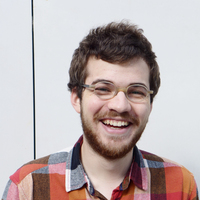- Early Medieval Monasticism, Late Antiquity, Early Medieval Studies, Early Christianity, Archaeology of churches, Cult of Saints, and 7 moreEarly Christian Archaeology, Late Antique Hagiography, Medieval Monasticism, Patristics and Late Antiquity, Priesthood, Later Roman Empire, and Late Antique Religionedit
- Jerzy Szafranowski is a member of the Faculty of History at the University of Warsaw. He has recently defended with h... moreJerzy Szafranowski is a member of the Faculty of History at the University of Warsaw. He has recently defended with honours his PhD thesis “Presbyters and deacons in the monastic communities of Late Antique Gaul”, written under Robert Wiśniewski’s supervision. Former member of the research project “Presbyters in the Late Antique West” (http://presbytersproject.ihuw.pl/).edit
This article shows the impact of clerical ordinations of monks on monastic communities of the late antique Latin West. Its first part demonstrates how the clerical hierarchy introduced by monk-presbyters and monk-deacons challenged the... more
This article shows the impact of clerical ordinations of monks on monastic communities of the late antique Latin West. Its first part demonstrates how the clerical hierarchy introduced by monk-presbyters and monk-deacons challenged the purely monastic power structure – based, above all, on the abbot’s supreme authority. It turns then to three organizers of monastic life active in the sixth century – Eugendus of Jura, Aurelian of Arles, and Benedict of Nursia – who, each in his own way, ensured that the appointment of monks to clerical ranks would leave the monastery’s hierarchy intact – or even reinforce it. In conclusion, it is argued that the problems provoked by monastic clergy were alleviated by the strict separation of monastic and ecclesiastical hierarchies, which is demonstrated particularly in the Benedict’s of Nursia Rule. This, in turn, contributed to the steady process of the clericalization of Western monasticism.
Research Interests:
This article challenges the belief – popular in modern scholarship – in the predominantly lay character of monastic communities before the 7th century. A closer look at the early 6th century Life of the Jura Fathers shows monasteries rich... more
This article challenges the belief – popular in modern scholarship – in the predominantly lay character of monastic communities before the 7th century. A closer look at the early 6th century Life of the Jura Fathers shows monasteries rich in monks who were at the same time presbyters and deacons. The paper investigates the reasons behind the clerical ordinations of monks and examines the various roles of presbyters and deacons in their monasteries. Finally, it considers the ways in which the ordained monks could have destabilized the community and the measures employed to counter their negative influence.
Research Interests:
Studia Patristica XCVII, Leuven 2017
